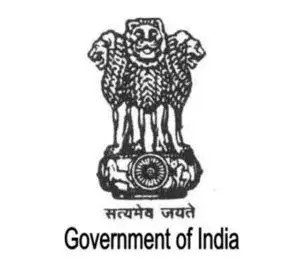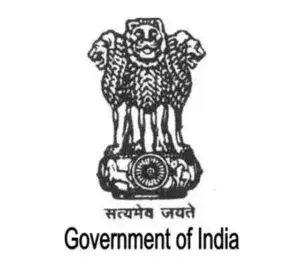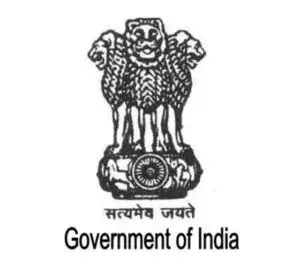India: Enemy property to be encashed for domestic uses

Source: www.india.gov.in
India has been working towards carving out its position in the international market in terms of being one of the most favoured business destinations. Policies and strategies have been devised out to improve the investment in terms of investor friendly schemes, reduced procedural hurdles, elimination of cumbersome procedures, etc. which elevate the position of the country. However, change in circumstances often causes the Government to take actions against the international investors which may be extend for a time frame.
Enemy Property
Any person may be identified as an enemy by a country in respect of its safety attributable to his activities and past records. Owing to strained relations between nations, they often recognize each other as their enemies. It brings to halt all major transactions between them including social welfare activities, educational exchange programmes, transfer of technical and scientific know-how, trade practices, etc.
Enemy means a person or country who or which was an enemy, an enemy subject or an enemy firm, as the case may be, under the Defence of India Act 1971 and Rules 1971, but does not include a citizen of India. It also includes the legal heir or successor of the aforesaid person, whether or not citizen of India or the citizen of a country which is not an enemy or the enemy who has changed his nationality.
The categorization as an enemy jeopardizes the interests of those holding assets in the country holding them citizens of enemy country. The Enemy Property Act in 1968 (hereinafter referred to as the “Act”) regulates and monitors the vesting of enemy property in the custody of the Custodian of Enemy Property of India (also referred to as “Custodian”). The provisions of the Act allow the Custodian to dispose of whether by sale or otherwise, as the case may be, with prior approval of the Central Government.
Sale of enemy shares- Approved
The Union Cabinet approved for sale of the enemy shares on November 8, 2018, some of the features of its the mechanism and procedure are stated as follows[1]:
- ‘In principle’ approval has been accorded for sale of enemy shares under the Custody of Ministry of Home Affairs/ Custodian of Enemy Property of India.
- Department of Investment and Public Asset Management has been authorized to sell the enemy shares.
- The process for selling these shares is to be approved by the Alternative Mechanism under Chairmanship of Finance Minister.
- Before initiation of sale of any Enemy Shares, the Custodian shall certify that the sale of the Enemy Shares is not in contravention of any judgment, decree or order of any court, tribunal or other authority or any law for the time being in force and can be disposed-off by the Government.
- Sale proceeds are to be deposited as disinvestment proceeds in the Government Account maintained by Ministry of Finance.
- The advisors/ intermediaries like Merchant Bankers, Legal Adviser, Selling Brokers etc. as may be required for the disposal of movable enemy property, shall be appointed by Department of Investment and Public Asset Management through an open tender/limited tender process. An Inter-Ministerial Group shall guide the process of sale.
As many as 6,50,75,877 shares in 996 companies of 20,323 shareholders are under the custody of the Custodian have been lying dormant for decades. With a view to liquidate such securities and the disposal of enemy property a framework has been institutionalized enabling the usage of such fund for development and social welfare programmes.
[1] http://pib.nic.in/newsite/PrintRelease.aspx?relid=184643
India: SEBI streamlines IPO process

Source: www.sebi.gov.in
Attributable to its global ranking for on ‘Ease to Business’ scale, India is increasingly being counted as a favoured business destination in the world. In order to facilitate the carrying out of business activities of varied nature, the Indian legal system allows a number of business structures such as proprietorship, partnership, companies and limited liability partnership. Incorporation of a company is a common mode for business transactions in the country.
Companies in India
Companies are the artificial legal entities having existence independent from its shareholders. Incorporated for the purpose of carrying out business activities as stated in its Memorandum of Association, the companies are often confronted by the requirement of capital with view to expand its operations and earn greater profits. The raising of capital for the said purpose is required to be done in accordance with the Companies Act, 2013 (hereinafter referred to as the “Companies Act”).
Investment in India
The Government is regularly devising schemes that boost the Indian market. The fastest growing economy not only encourages progress of business in India but also makes it an attractive investment option. With a view to secure investment for the Indian business sector, the Government has been making efforts with the help of introduction of investor friendly policies.
Regulated framework
Governed under the provisions of the Securities and Exchange Board of India Act, 1992 (hereinafter referred to as the “SEBI Act”), the Securities and Exchange Board of India (hereinafter referred to as the “SEBI”) is the market regulator of India which aims to protect the interests of investors in securities and to promote the development of, and to regulate the securities market and for matters connected there with or incidental thereto.
Initial Public Offering
One of the mediums for the companies to raise capital is through initial public offer means an offer of specified securities by an unlisted issuer to the public for subscription and includes an offer for sale of specified securities to the public by any existing holders of such specified securities in an unlisted entity. It serves as the largest source of funds for a company to meet expenses for its projects and go public by being listed on a Stock Exchange.
IPO timeline reduction
SEBI, in its endeavour to provide an efficient mechanism for raising funds, has been continuously striving to regulate the process and methodologies associated with public issue fund raising process. In the said regard, the regulator issued a circular for streamlining the process of public issue of equity shares and convertibles dated November 1, 2018.[1]
With a view to free up the locked investor funds faster so as to benefit both issuers as well as investors, SEBI has initiated the process to reduce the timeline for public issues from the current 6 days to 3 days in a phased manner by making it mandatory for intermediaries to provide retail investors the option of bidding through the Unified Payments Interface as a payment mechanism with Application Supported Block Amount for applications in public issues.
In the second phase, the current mechanism of physically submitting bid forms from the intermediaries to the banks would be discontinued after 3 months. The said process would be effective April 1, 2019 onwards.
Subsequent third phase provides that final reduced timeline will be made effective using the Unified Payments Interface mechanism.
The proposed process is expected to increase efficiency, eliminate the need for manual intervention at various stages, and will reduce the time duration from issue closure to listing by up to 3 working days.
[1] https://www.sebi.gov.in/sebi_data/attachdocs/nov-2018/1541067380564.pdf



 India has been working towards carving out its position in the international market in terms of being one of the most favoured business destinations.
India has been working towards carving out its position in the international market in terms of being one of the most favoured business destinations. SEBI aims to reduce the timeframe for initial public offering in India to make the process time efficient.
SEBI aims to reduce the timeframe for initial public offering in India to make the process time efficient.